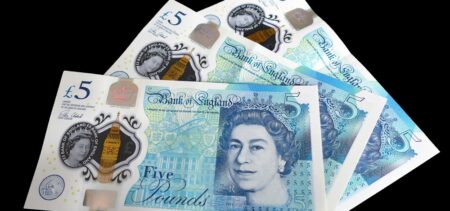Are you someone who likes to randomly spend money on things you don’t need? Or are you the type to cling to your cash and even hesitate to spend on anything, even if it’s something important?
The truth is that your emotions play a big role in your financial behavior—it dictates how you spend, when you spend, and when you don’t. So, by taking that into consideration, you can change your financial behavior by understanding these emotions and how they play out with your money. In this article, we’re going to take a hard look at this and how you can use your emotions as assets to strengthen your financial situation and get out on top.
Emotions as a driving force behind financial decisions
Your emotions are the conductor of your money train; it’s as simple as that. If you’re someone who tends to go on a spending bender when you’re feeling sad, then you’re the perfect example of someone who lets their feelings dictate their spending behavior.
Common emotions that influence financial behavior
Some of the biggest reasons behind us mishandling our money are fear, greed, hope, and overconfidence. Whether it’s the fear of missing out or the greed for that shiny new thing, these emotions can seriously mess with our heads.
- Fear: Everybody is afraid of losing their hard-earned cash. Hey, it can even send the bravest investors running for the hills. To genuinely get over it, you need courage and knowledge which will help you make decisions based on fact and not emotion.
- Greed: Greedy people can sometimes do some crazy things if they’re not careful. Investing in that sketchy startup is never a good idea, no matter how great it may seem. And sure, sometimes you need to risk it to get the biscuit, but there’s definitely a difference between a calculated risk and just jumping blindly.
- Hope: You need hope to keep you going when the going gets tough, but too much hope can also make you a little blind to the harsh realities. It’s a fine line, but you can definitely have hope and be realistic at the same time.
- Overconfidence: You may, at some point, think you’ve got the whole investing thing figured out, and that you have a certain finesse or even luck that other people don’t. Who knows? Maybe you’re a natural at spotting the duds and golden eggs – but overconfidence can kill your dreams faster than a bullet train. Nobody’s got a crystal ball, so best to stay humble and look out for the warning signs.
Impact of emotions on risk tolerance and investment choices
You may not think so at first, but the above emotions play a huge role when it comes to how we make decisions financially. After all, it dictates our thought processes, priorities, and everything else that eventually boils down to a decision. When you see it like that, it feels like a slippery slope. But you can really get it all under control by understanding the impact of your emotions and taking steps to mitigate that impact early enough to be able to make a U-turn while you still can.
Examples of cognitive biases in finance
Let’s dive into some concrete examples of cognitive biases that commonly rear their heads in financial decision-making:
Confirmation bias
This happens when a person genuinely only listens to information that confirms what they already believe and disregards anything else that might say otherwise. In finance, investors may selectively interpret news or data that supports their investment decisions, leading to potentially biased conclusions.
Loss aversion
This is a common occurrence for a lot of people. Loss aversion refers to when you’re so incredibly scared of your chances of losing money that the odds of you getting any don’t carry any weight whatsoever. Being a very risky bias, some investors, when they’re losing a lot of money on a bad investment, will actually hold on tighter to it in the hopes of getting the money back rather than just cutting their losses.
Anchoring
Anchoring occurs when individuals rely too heavily on initial information (the “anchor”) when making subsequent decisions. In finance, this can manifest as fixating on a specific price or valuation, even if it is arbitrary or outdated, leading to distorted assessments of investment opportunities.
Financial Personality Types and Getting to Know Yours
When it comes to managing money, every single person has their one way of doing things, depending on their attitudes and behaviors. These financial personalities, even if you don’t think so, dictate largely how we handle finances and make decisions about saving, spending, and investing.
Identifying your own financial personality type:
- Saver: Being a saver is a pretty good personality type to have. These people are able to distinguish their wants and needs and truly see the bigger picture when it comes to their finances and how it’s handled.
- Spender: Spenders are the opposite of savers. Splurging on yourself isn’t the worst thing in the world, but you might have a harder time building a nest egg for yourself. Spenders also tend to prioritize immediate gratification and like to indulge in impulse buying without proper planning or budgeting.
- Risk-taker: Risk-takers are your all-or-nothing type of people. These folks either strike gold or end up with pretty much nothing, and it’s that risk factor that acts as the driving force behind their decisions. It’s an adrenaline rush and the idea of “anything’s possible” that offers a thrilling ride, and they may be comfortable with taking calculated risks in pursuit of greater rewards.
- Avoider: When someone is an avoider, they tend to show extreme caution to doing anything with their money, whether it be saving, investing, or even settling their financial issues. This isn’t the best situation to be in because if you’re not doing anything with your money, it won’t grow and multiply.
How to Overcome Emotional Biases
If you want to give yourself a financial reset and make better decisions financially, then you need to develop self-awareness regarding your emotional triggers and reactions they have. If you’re not sure where to start and what to do, then maybe begin with taking a little time and taking a look in the proverbial mirror. Which emotions do you experience most with regard to your finances? What do you do with your money when you have these feelings? That’s a great place to start.
Create your own decision-making process
It won’t help just making it up as you go along and hoping everything will work out in the end. Taking the data that’s available and creating a decision-making process for yourself will help you get back in line when you feel yourself straying from the path. By approaching decisions with a clear and logical mindset, you can minimize the influence of emotional biases and make more informed choices.
Set clear financial goals and stick to them
If you’re not setting goals for yourself, then it’s almost like getting in a car and driving without any destination in mind. Also, if you don’t have financial goals, then you don’t have anything to work towards and even look forward to. After you’ve set these objectives for yourself, set a deadline for each one so you have something pushing you on days when you need it. By focusing on concrete targets and staying disciplined in your approach, you can mitigate the impact of emotional impulses and stay on track toward financial success.
Final Thoughts
Being able to manage your emotions and be in total control of your actions is one of the most important things in your life if you ever want to have total control of your finances. There’s nothing wrong with spoiling yourself when you’ve had a big win professionally or personally, but regular spending benders to soothe or reward can create problems that could’ve otherwise been avoided. Through clear goal-setting, disciplined planning, and seeking professional guidance when needed, we can navigate the ups and downs of the financial markets and build a solid foundation for a secure financial future.












































